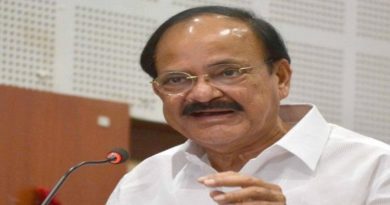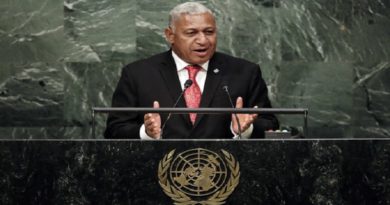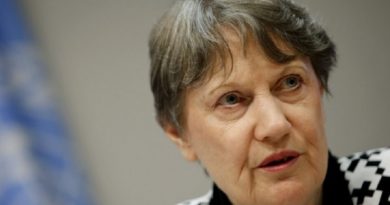Racing for more Ambition: Global Climate Action Network showcases progresses
After five days of Bonn Climate Talks, several conversations and issues have emerged, both pleasing and disappointing, depending on interest.
For the Global Climate Action Network, the organisers of the Climate Action Summit (GCAS) taking place later in September in San Francisco, they believe there is strong evidence of how cities, states, regions, businesses and investors are taking climate ambition to the next level, helping to build momentum for a successful outcome at COP 24, later in December.
Specifically, 11 new commitments from Mahindra, among India’s largest business houses, push the number of major global companies with science-based targets to over 400.
Speaking to delegates and journalists at the ongoing talks in Bonn, Anirban Ghosh, Chief Sustainability Officer of the Mahindra Group announced that business had taken an important step forward, saying that in total, 13 of its companies have now committed to cut their emissions in line with the Paris Agreement goals by signing-up to a science-based target.
Anand Mahindra, Mahindra Group Chairman said, “There is remarkable congruity between the goals of the Paris Agreement, the Indian Government, and businesses like the Mahindra Group. India, like the Agreement, is driven by a strong belief at the highest political level that pursuing environmental stability is the only way forward.”
And welcoming this development, Summit Co-Chair and UN Climate Change Executive Secretary, Patricia Espinosa said, “At COP24 in Katowice, the world has much to accomplish to ensure that the Paris Agreement delivers the desired result, which is to keep climate change within manageable limits. Thankfully, the revolutionary progress underway in the ‘real world’ economy, which will descend on California in September, will be instrumental to helping make Poland a success.”
The briefing heard that, to date, over 700 leading businesses around the world have made strategic climate commitments through the “We Mean Business coalition’s Take Action campaign,” collectively representing 2.62 gigatons of emissions, which is equivalent to the total annual emissions of India.
Mahindra’s commitment falls under the second of the five challenges – Inclusive Economic Growth – and means that so far 400 companies have positively reacted to this particular “call to action,” which aims to sign on 500 companies by the conclusion of the summit in September.
In addition to adding critical momentum to the COP24 negotiations in Poland this December – when governments of the world will meet to signal their readiness to enhance ambition – the September summit in San Francisco will build momentum for a strong outcome at the Climate Summit convened by UN Secretary-General António Guterres in 2019 and to elevate climate action plans – Nationally Determined Contributions (NDCs) – by 2020.
Nick Nuttall, Global Climate Action Summit Communications Director said 2018 is crucial for global leaders to step up climate action, and set the stage for the fast and full implementation of the Paris Agreement.
The Global Climate Summit will be hosted by the Governor of California, Jerry Brown; the UN Secretary-General’s Special Envoy for Climate Action, Michael Bloomberg; the Chairman of the Mahindra Group, Anand Mahindra; and the Executive Secretary of UN Climate Change, Patricia Espinosa.
It is set to bring together state and local governments, business, and citizens from around the world to showcase climate action taking place, thereby demonstrating how the tide has turned in the race against climate change and inspiring deeper national commitments in support of the Paris Climate Change Agreement.
The Summit’s five headline challenge areas are Healthy Energy Systems; Inclusive Economic Growth; Sustainable Communities; Land Stewardship and Transformative Climate Investments
However, while businesses are showcasing what they believe is the positive momentum for change, civil society under the ACT Alliance are still not satisfied with delayed action, and calling for urgent action to address climate change and its impacts.
“The international community must now take bold action to address climate change and to adequately respond to its impacts. We cannot afford any delays or to waste any time,” said Rudelmar Bueno de Faria, ACT Alliance’s General Secretary.
At the top of the agenda for the Bonn Session is the Talanoa Dialogue that will encourage sharing between parties and stakeholders on progress made towards their climate commitments, the Paris Rulebook that will outline the modalities, procedures and guidelines for the implementation of the Paris Agreement, and the Suva Expert Dialogue on support for climate induced loss and damage.
“There is now every indication that we have just a few years before surpassing the 1.5 degree global warming target, which means that our policies and actions towards a more volatile climate must be ambitious and unequivocal,” emphasized Bueno de Faria.
The Suva Expert Dialogue on loss and damage support is expected to advance the discussions on climate finance and other means necessary to respond to the adverse impacts of climate change that go beyond the ability of communities to adapt.
On the modalities of the implementation, ACT Alliance expressed concern about the slow progress of the Paris Rulebook, which they have demanded should be ready by the end of this year, with a strong inclusion of transparency and accountability at all levels.
Meanwhile, some groups feel the fossil fuel industry is influencing delayed climate action through their lobbyists sitting at the negotiations table.
According to a study, titled “Revolving doors and the fossil fuel industry,” carried out by a coalition of CSOs in 13 European countries, and supported by the European Parliament, found that failure to deal with conflict of interest by the EU is due to cosy relationships built up with the fossil fuel sector over the years.
“There is a revolving door between politics and the fossil fuel lobby all across Europe,” said Max Andersson, Member of the European Parliament, at the Bonn Climate Talks. “It’s not just a handful of cases—it is systematic. The fossil fuel industry has an enormous economic interest in delaying climate action and the revolving door between politics and the fossils fuel lobby is a serious cause for alarm.”
According to Andersson, to meet the goals of the Paris Agreement and keep global warming to as close as 1.5 degrees as possible, there is need to clamp down on conflict of interest to stop coal, gas and oil from leaving “their dirty fingerprints over our climate policy.”
Courtesy: PAMACC News Agency



